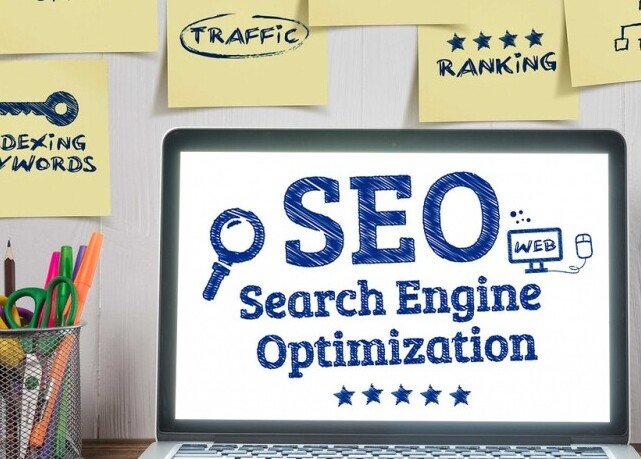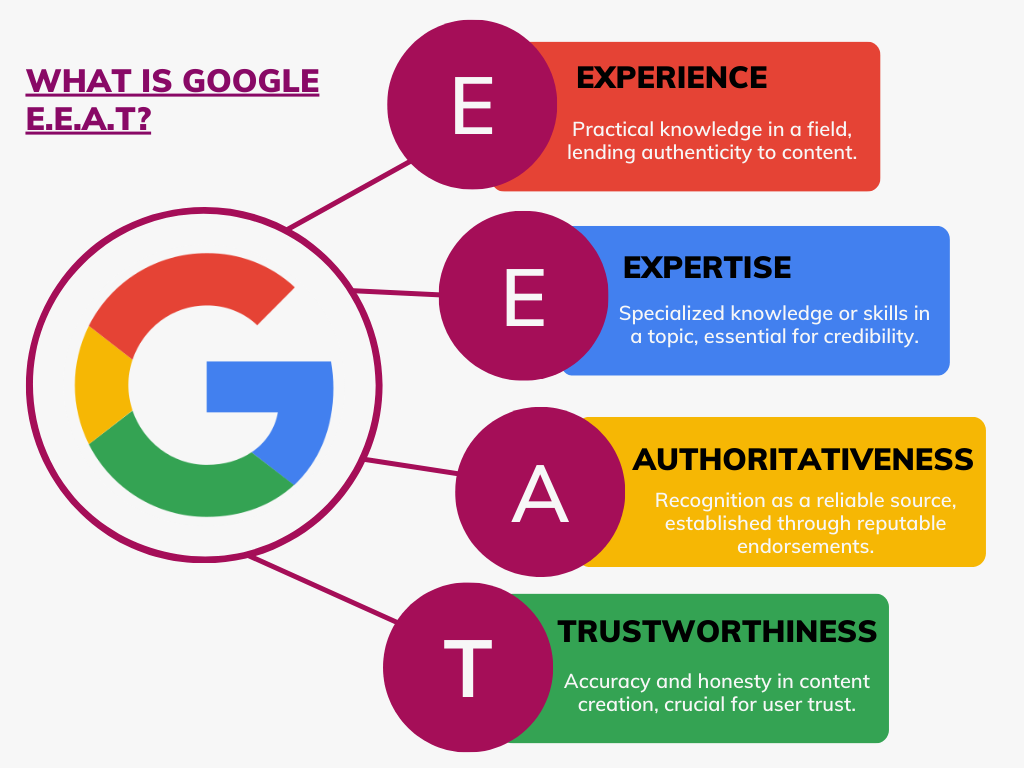AI-generated content is shaking up the content creation landscape in a big way. But what exactly does it mean? It means that SEO for AI Content is more relevant than ever. This type of content is produced by algorithms designed to mimic human thought processes, crafting everything from articles to customer service responses. It’s like having a writer who never complains about deadlines.
The journey from traditional content to AI-driven creations marks a monumental shift. In the past, writing was all about human creativity and unique voice, but now, algorithms are stepping in, offering speed and consistency. However, while AI can crank out massive amounts of content at lightning speed, it lacks the nuanced touch of human emotion and creativity—something worth noting when considering its limitations.
AI in Modern Content Creation
The role of AI in modern content creation is central to today’s digital strategies. Businesses are using AI for everything from basic content generation to complex data analysis, making sure their strategies are spot on. This approach not only reduces costs but also increases efficiency. But remember, while machines are smart, they don’t understand like humans do. That’s why a balanced approach, where humans enhance AI outputs, is a smart move.
AI-generated content offers both immense potential and notable limitations. On the potential side, think of rapid content production and scalability. However, its limitations are also worth mentioning. AI content can sometimes read a bit robotic or struggle with complex emotional topics. To really maximize its benefits, integrating human oversight and creativity with AI capabilities is the way forward. This not only bridges the gap between quantity and quality but also ensures the end product resonates with real people.

Does AI Content Work for SEO?
Yes, AI-generated content can work for SEO, but with caveats. AI tools can generate text efficiently and at scale, making it easier to produce keyword-rich content. However, the quality, originality, and relevance of the content play a crucial role in how well it performs in search engines.
To make AI content work for SEO:
- Originality is Key: While AI tools can produce articles, blogs, or product descriptions, ensuring the content isn’t repetitive or similar to existing content is essential for ranking well.
- User Intent: Google’s algorithms are increasingly focused on understanding user intent and offering content that satisfies it. AI-generated content must align with user intent and provide valuable insights or solutions.
- Natural Flow: Google’s algorithms are designed to detect whether content is human-friendly. Content generated by AI that is too mechanical or filled with unnatural keyword stuffing could hurt SEO efforts.
- Frequent Updates: AI tools need to be continuously optimized to reflect search engine updates (e.g., Google’s Core Web Vitals or the Helpful Content update) to ensure the content remains effective for SEO.
SEO For AI Content: A Harmonious Integration
SEO is crucial for any content that wants a fighting chance on the internet. It’s the set of practices that help push content up the ranks of search engine results, making sure the right eyes land on your hard work. AI content is no different. It’s important to apply those tried-and-true SEO principles to your AI-generated content as well to ensure it stands out.
Applying SEO to AI content isn’t as complicated as it might sound. The key lies in understanding the basics: keyword research, quality links, and readability. Make sure keywords are seamlessly integrated, so the piece stays informative and not robotic. Avoid overstuffing keywords—content quality should not suffer at the expense of SEO tactics.
Balancing SEO with readability means writing content that doesn’t read like a string of buzzwords. You want content that’s engaging and flows naturally. This is the essence of people-first content. AI technology, when directed correctly, will match SEO richness with readability, cooking up content that’s both accessible and discoverable.
Improving visibility isn’t just about keywords. It’s about structuring AI content for both people and search engines. This involves the proper use of headings, subheadings, and metadata. Search engines appreciate clear structures, and so do readers. The aim is to guide readers through the content naturally, while search engines rank you favorably for well-organized information.

How to SEO for AI Search?
With the rise of AI-driven search models like Google’s Multitask Unified Model (MUM) and other AI advancements, the approach to SEO has evolved. Here’s how you can optimize for AI search:
- Semantic Search Optimization: Focus on optimizing content for intent and meaning, not just keywords. AI search engines like Google are increasingly interpreting search queries based on their context, so your content must be comprehensive, answering questions users may have.
- Topic Clusters: Group related content into “clusters” that revolve around a core topic. AI-based search engines favor content hubs or pillar pages with comprehensive answers and interlinked supporting articles.
- Rich Media: AI searches increasingly look at more than just text. Make sure your content includes images, video, infographics, and even interactive elements that help convey meaning and engage users.
- User Experience Signals: Factors such as load speed, mobile-friendliness, and engagement (click-through rate, bounce rate) are more important than ever in the age of AI search. Google’s AI uses these signals to gauge the quality of your content.
- Structured Data: Use schema markup (structured data) to help AI-powered search engines understand your content’s context and purpose. This helps with voice search optimization, featured snippets, and rich results.
How to Write SEO Content with AI?
Writing SEO content with AI requires a combination of automation and human touch to achieve optimal results:
- Use AI for Research: AI tools like ChatGPT, Claude, or ( yours truly) ContentRedefined AI SEO Writer can help generate ideas, outlines, or even full drafts, saving time on research and basic content creation.
- Keyword Integration: AI tools can generate lists of target keywords and semantically related terms, which can be seamlessly incorporated into the content. However, ensure that the keywords are naturally woven into the text rather than stuffed.
- Human Editing: AI-generated content must be reviewed and edited by a human to ensure it resonates with the audience and adheres to Google’s guidelines for quality content. Editing is necessary to adjust tone, refine sentence structure, and ensure that the content is engaging and informative.
- Use AI to Personalize Content: AI can be useful for generating personalized content based on user data or behaviors, especially for e-commerce websites, blogs, and marketing emails. Personalization can significantly improve SEO by increasing engagement and user satisfaction.
- Content Optimization: Use AI-driven SEO tools like SurferSEO, Clearscope, or MarketMuse to optimize your content for specific keywords, readability, and related topics. These tools analyze top-performing content and recommend changes to improve your SEO.
Crafting People-First Content: Beyond Bots and Algorithms
People-first content means putting your audience at the heart of your writing and it’s essential when doing SEO for AI content. This approach aims to connect with readers on a human level, making sure the content resonates with their needs and interests. It’s not just about pushing information; it’s about creating meaningful interactions.
Humanizing AI content can seem challenging, but it’s definitely doable. Start by focusing on tone and style. Ensure the language isn’t too mechanical. Using conversational language that mirrors natural speech helps create a friendlier vibe.
Unique insights and real-life examples are gold when it comes to connecting with the audience. These elements provide depth and authenticity, making your AI content stand out amid a sea of generic outputs.
Engagement happens when readers feel seen and heard. Including elements like questions, prompts for feedback, or relatable scenarios can turn passive readers into active participants. This is how content becomes a dialogue rather than a monologue.
Feedback loops are essential for refining content strategy. Pay attention to comments, ratings, and shares. They offer invaluable clues about what resonates with your audience and what doesn’t. Regularly tweaking AI output based on this feedback can significantly enhance effectiveness, ensuring your content remains relevant and impactful.
Skyrocket Organic Traffic Today
Ready to take your organic rankings to the next level with AI? Our own AI SEO Writer has you covered. Registration is free and comes with 5000 words per month with a free account. AI Content is just some clicks away!
Try our AI SEO Writer todayCan Google Detect AI SEO?
Yes, Google can detect AI-generated content, but it doesn’t necessarily penalize it as long as it follows its quality guidelines. Google’s main concern is whether the content provides real value to users rather than how it was produced.
- Quality Assessment: Google uses AI-powered systems, such as its BERT and MUM models, to evaluate content for relevance, accuracy, and helpfulness. If AI-generated content is keyword-stuffed, thin, or doesn’t meet user needs, it can be flagged as low-quality, regardless of how it was created.
- E-E-A-T (Experience, Expertise, Authoritativeness, Trustworthiness): Google’s Search Quality Rater Guidelines emphasize the importance of content that demonstrates expertise, authority, and trustworthiness. Even AI-generated content should be edited to include expert insights, sources, or citations, especially in fields like healthcare, finance, or law. More on this below.
- The Helpful Content Update: Google’s recent update focuses on rewarding “people-first” content and penalizing content that seems to be created solely for search engine rankings. This means that AI-generated content designed solely to rank well, without genuinely addressing users’ needs, could suffer in rankings.
While AI-generated content can be detected by Google, as long as it is high-quality, useful, and relevant, it won’t inherently harm your SEO efforts. In fact, with the proper balance of AI and human touch, it can be quite effective.
E-E-A-T Principles: Building Authority and Trust Through AI Content
E-E-A-T stands for Experience, Expertise, Authoritativeness, and Trust—core principles to aim for in any content strategy. These elements help establish the credibility of your content, whether it’s AI-generated or not.
Experience and expertise begin with understanding your audience and industry. Content should come from a knowledgeable perspective, backed by research or expert opinions. AI can assist by aggregating data and summarizing trends, but the human touch adds depth and context that bots can’t fully replicate.
Authoritativeness is about being a go-to source in your field. Consistently producing high-quality, informative content that addresses your audience’s questions and needs will enhance your reputation. AI can support this by identifying gaps in content that you can fill with fresh insights.
Trust is what ties everything together. AI content needs to be transparent about its creation. Readers should know when they’re reading AI-generated info. Regular review of AI’s work by human editors ensures accuracy and reliability, building trust with the audience.
Looking at successful case studies can be enlightening. Brands that effectively combine AI content with E-E-A-T principles often thrive because they leverage both technological efficiency and human creativity to set themselves apart.

Image Source: https://www.andava.com/learn/google-eeat
If you are hungry for more on EEAT, Neil Patel provides a brief, nice explanation on how to optimise your website for EEAT in the video below.
Technical SEO for AI Content: Ensuring Structure and Accessibility
Technical SEO is the backbone of content visibility, dealing with the nitty-gritty details that make sure your AI content is both accessible and appealing to search engines. It’s the bridge between what you publish and how effectively it’s discovered and consumed.
Start with the fundamentals—are your URLs clean and descriptive? A streamlined URL can enhance navigation for both users and search bots, making the content easier to index.
Mobile optimization is non-negotiable. With most users accessing content via smartphones, ensuring that AI-generated content adapts seamlessly to mobile screens isn’t just smart; it’s necessary. Mobile-first indexing means that a mobile-friendly design directly impacts search rankings.
Fast loading times are crucial for both user satisfaction and search engine favor. This means compressing images, leveraging browser caching, and minimizing JavaScript where possible to ensure your AI content is slick and quick.
Content structure matters more than ever. Use headers, subheaders, and bullet points to break up text, making it digestible for readers and accessible for crawlers. This not only helps with readability but actively contributes to SEO effectiveness.
Remember that technical SEO isn’t just about the mechanics but about creating an experience where content is effortlessly accessible. By refining these technical aspects, your AI content will not only reach a wider audience but also provide them with the seamless experience they expect.
Content Optimization Tools and Techniques: Leveraging AI for SEO
AI-enhanced tools are revolutionizing how we approach SEO, offering a range of insights that streamline the process of optimizing content. By integrating these tools, we can vastly improve the visibility and efficacy of AI-generated content.
Start with leveraging platforms that provide comprehensive analytics, like SEMrush, Ahrefs, or Jaaxy. These tools can uncover what’s missing in your content strategy, offering keyword suggestions and competitive analysis to help sharpen your approach.
Techniques such as A/B testing are invaluable. By comparing different versions of AI content, you can gauge which elements resonate more with your audience, refining content output for better engagement and conversion rates.
Tracking metrics is foundational in making informed decisions. Monitor key performance indicators, such as click-through rates, page views, and user engagement metrics. This data not only tells you what’s working but also directs where improvements are needed.
User feedback shouldn’t be overlooked. AI-generated content can sometimes miss the mark on nuance, so integrating direct feedback helps tailor it more closely to what users want. It’s a cyclic process—create, analyze, adapt, and refine to keep your content evolving.

Looking Ahead: The Future of AI Content in SEO
AI content and SEO are constantly evolving, with new developments cropping up all the time. Staying ahead in this dynamic field means keeping an eye on trends and adapting strategies to suit the ever-changing landscape.
Emerging trends like voice search are gaining traction and changing the way people interact with search engines. AI tools can help optimize content for these new modes of interaction, ensuring your content remains accessible and relevant.
Potential innovations in AI content are promising, with advancements in natural language processing and Large Language Models (LLMs) like ChatGPT, Claude, and LLama, making AI-generated text more sophisticated and human-like. Embracing these innovations can elevate content quality and user engagement.
To stay ahead, continual learning and flexibility are key. Regularly updating skills and knowledge keeps you sharp and ready to adapt to technological changes that impact content creation and SEO.
Sustainable strategies ensure long-term success. Rather than relying on short-term gains, focus on building a solid foundation with high-quality content that’s both user-centric and technically optimized.
As we look to the future, maintaining a balance between AI efficiency and human creativity will be crucial, ensuring that as SEO and AI content evolve, so does the trust and engagement of your audience.
Skyrocket Organic Traffic Today
Ready to take your organic rankings to the next level with AI? Our own AI SEO Writer has you covered. Registration is free and comes with 5000 words per month with a free account. AI Content is just some clicks away!
Try our AI SEO Writer today

